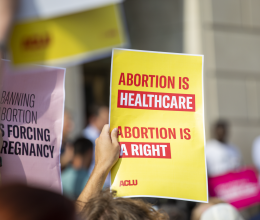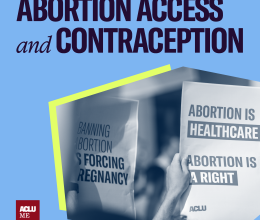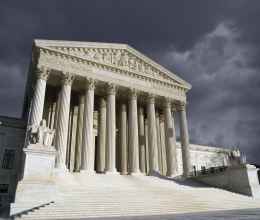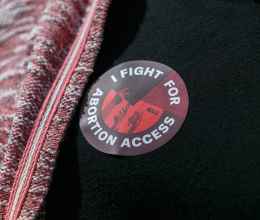
The court unanimously rejected a request by anti-abortion groups to restrict mifepristone nationwide.
The Supreme Court of the United States today rejected anti-abortion groups’ request to impose nationwide restrictions on mifepristone in Alliance for Hippocratic Medicine v. FDA. Mifepristone is a safe and effective medication used in almost two-thirds of abortions in the U.S. and for miscarriage care.
“Medication abortion and miscarriage care remain legal in Maine, but today’s ruling is far from the end of the line,” said ACLU of Maine Executive Director Molly Curren Rowles. “We are relieved by this unanimous decision clarifying that the availability and use of this medication does not violate the rights of those who do not want to use it. Abortion bans in other states still stand and the court could consider other challenges in the future. This decision also comes as the court is set to rule in another case that will determine whether anti-abortion politicians can force doctors to withhold emergency room care from their patients while they suffer severe, life-altering pregnancy complications.”
The case reached the Supreme Court after a federal district judge in Texas attempted to remove mifepristone from the market and the Fifth Circuit for the United States Court of Appeals imposed severe nationwide restrictions. In today’s ruling, the Supreme Court reversed the Fifth Circuit’s decision on the grounds that the anti-abortion doctors who brought the case do not have a sufficient connection to the FDA’s regulation of mifepristone for legal standing. The decision will preserve the state-level patchwork of access to medication abortion for now.
“Today's ruling is a victory for abortion access, but the fight is not over to protect access in Maine and restore access in other states,” said Curren Rowles. “We won't stop fighting – because the government should never have the authority to force a person to remain pregnant against their will.”
The American Civil Liberties Union filed an amicus brief in this case highlighting how the lower court decisions imposing sweeping restrictions on mifepristone relied heavily on unreliable testimony and flawed research from a handful of witnesses who oppose abortion in all circumstances and want to see it banned nationwide.






